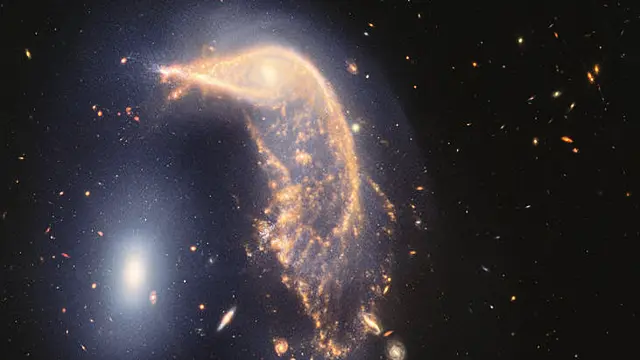The Webb Space Telescope has captured two intertwined galaxies glowing in the infrared.
The observatory operated by Nasa and the European Space Agency photographed the two galaxies 326 million light-years away, surrounded by a blue haze of stars and gas.
A light-year is 5.8 trillion miles.
The pictures, released on Friday, mark the second anniversary of Webb’s science operations.
We’re celebrating two years of science for @NASAWebb! 🎉
The second anniversary image from the largest telescope in space shows two interacting galaxies called the Penguin (NGC 2936) and the Egg (NGC 2937), entwined in a slow cosmic dance: https://t.co/x4GImWwTRw pic.twitter.com/po60sNkQQN— NASA (@NASA) July 12, 2024
The neighbouring galaxies, nicknamed Penguin and the Egg, have been tangled up for tens of millions of years, according to Nasa.
They will eventually merge into a single galaxy.
The same interaction will happen to our own Milky Way and the Andromeda Galaxy in four billion years, the space agency said.
Considered the successor to the ageing Hubble Space Telescope, Webb is the biggest and most powerful astronomical observatory ever launched.
It rocketed away in 2021 and underwent six months of commissioning, before its first official images were released in July 2022.
It is positioned one million miles from Earth.
“In just two years, Webb has transformed our view of the universe,” Nasa’s Mark Clampin said in a statement.







